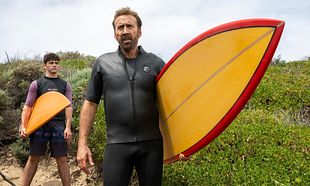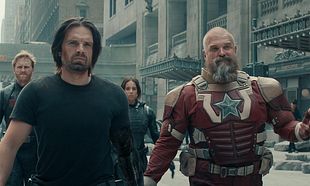'What Richard Did' is a slow-burning, startling piece of work. Loosely based on Kevin Power's Bad Day In Blackrock, a fictionalised story based on the assault on Brian Murphy outside the Burlington Hotel twelve years ago, What Richard Did might be a shadow of the true story but its origins are inescapable.
"He got up and walked away," is Richard Karlsen's protest. An eighteen-year-old from a privileged area of South Dublin, Richard (Reynor) is his prestigious school's rugby captain. He drives a car. His folks have a holiday home on the beach. None of this he waves in anyone's face, even Conor's (Keeley), a less affluent boy who surreptitiously calls him 'Super Rich'. When Richard sets his sights on Conor's pretty girlfriend, Lara (Murphy), however, he uses all of the above means to woo her. It works but Conor hangs around, making Richard uneasy and insecure.
After too many drinks at a house party, an altercation occurs in the driveway with Richard and his two friends setting on Conor with a kick to the head. It's a scuffle and Conor gets up and staggers off. The next day, however, the news is that a teenager died the night before at a house party and Richard panics. He goes about his friends to get their story straight...
This terrific drama heralds Lenny Abrahamson as a major director. In similar style to his previous two features Adam & Paul, Garage, and the TV series Prosperity, Abrahamson (for the first time working without writer Mark O'Halloran) is not concerned with flashy shots; this is a director who is only interested in character and plot. The story likes to exist in the cracks, what most movies would deem downtime, which gives each scene a natural feel, allowing the actors room to be the characters, and all concerned deliver. Jack Reynor is so good it's chilly but he's not on his own: Roisin Murphy, Sam Keeley, Fionn Walton and Gavin Drea are ones for the future.
All eyes were on Abrahamson and how, working from Malcolm Campbell's (Shameless) script, he would deal with the difficult issue of the resulting court case, which the public largely felt cemented the theory that the rich take care of their own. Abrahamson's tactic defines the film and while it can't be discussed here for spoiler reasons what can be said is that it doesn't shake its head in a Larry Clark/Rivers Edge judgement. We, via Abrahamson, are merely observers - the judging and debating will come post credits and for years to come.















































































